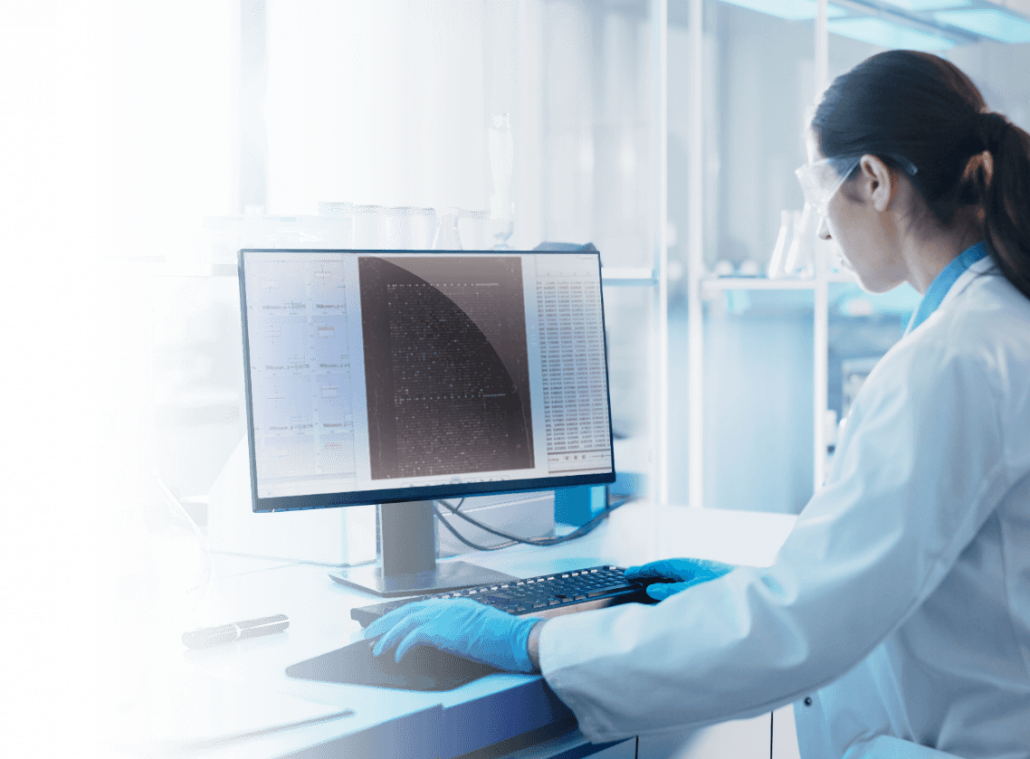Unlocking The Power of Autoantibody Biomarkers in Disease Diagnosis
Essentially, biomarkers act as indicators of a specific biological process occurring inside the body. For instance, if you have high blood pressure, associated biomarkers would include inflammation and irregularities of blood lipids.
Biomarker discovery is extremely useful for drug development. A biological marker can help to pinpoint diseases. That way, when a new drug or therapy is introduced, or even put under clinical trials for regulatory approval, the biomarker can be measured as an indicator of improvement or change. This utility explains why the market for biomarkers is expected to be worth $39 billion when we reach 20301.
Autoantibody biomarkers are a special class of biomarkers that are emerging as powerful disease-relevant indices for early disease detection and disease monitoring across different complex diseases such as cancer and neurodegenerative. Autoantibodies are produced by the immune system in response to foreign material or unexpected changes in normal physiology. They are direct manifestations of disease and consequently are highly specific to disease.

The Nature and Significance of Autoantibodies
Complex Disease Detection
Autoantibodies are often regarded in the context of Autoimmune diseases where they are central to the pathogenesis. The detection of anti-nuclear antibodies is a hallmark of systemic lupus erythematosus, while antibodies against cyclic citrullinated peptides are a diagnostic of rheumatoid arthritis. However, autoantibodies can occur in other complex diseases such as cancer and neurodegenerative diseases, emerging in response to alterations in self-proteins or through molecular mimicry. They often precede the clinical onset by years and persist throughout its course. The detection of specific autoantibodies can, therefore, serve as an early indicator of disease, offering a window of opportunity for timely intervention and management.
An example of this can be seen in the study of breast cancer. When autoantibodies to p53 and HSP are screened together sensitivity during breast cancer screening improved to 86%2. Autoantibodies enhance the likelihood of a diagnosis and identify protein pathways implicated in the disease. They can be combined with other diagnostic tests, like magnetic resonance imaging or blood tests, to further improve diagnostic accuracy at very early stages of cancer.
Precision Medicine
The utility of autoantibody biomarkers extends beyond early disease detection. These molecules facilitate patient stratification, enabling healthcare providers to tailor treatment approaches to individual patient profiles.
Autoantibody profiles can change in response to disease progression or treatment, providing valuable information for monitoring patient status. By monitoring changes in autoantibody profiles, clinicians can assess treatment efficacy, predict outcomes, anticipate immune-related adverse events and alter the treatment regimen accordingly. The predictive value of autoantibodies in forecasting the course of a disease or treatment-related adverse events can significantly impact patient quality of life by guiding clinician decision making to tailor therapies early in disease towards optimal patient outcomes. This level of precision in diagnosis and treatment underscores the transformative potential of autoantibody biomarkers in personalized medicine.
Challenges and Future Directions
Despite their potential, the utilization of autoantibody biomarkers faces challenges. Variability in autoantibody expression among individuals and over the course of a disease can complicate interpretation. The sheer volume of antigens and antibodies to evaluate is burdensome and time consuming. Furthermore, the need for highly sensitive and specific assays to detect autoantibodies underscores the importance of technological innovation in this field.
Looking ahead, ongoing research and development efforts are focused on expanding the repertoire of identifiable autoantibodies and enhancing assay technologies.
Sengenics: Pioneering Autoantibody Biomarker Applications
Here at Sengenics, we leverage the information captured by autoantibody biomarkers to advance diagnosis, prognosis, and disease management. Through our innovative KREX® technology, our brand provides highly specific and reproducible data, essential for the development of novel diagnostic solutions.
Ultimately, our expertise with autoantibody biomarkers spans various applications, including:
- Patient stratification
- Treatment response prediction
- The identification of potential adverse events
- The development of companion diagnostics.
Our team of bioinformatics experts embraces AI technologies to manage, interpret and identify the most relevant proteins involved in disease. Our contributions to the field illustrate the broad applicability and potential of autoantibody biomarkers to transform patient care across multiple disease states.
Embrace the Potential of Autoantibody Biomarkers
Here at Sengenics, we believe it is important to understand the wide range of possibilities that can come from the research into autoantibody biomarkers.
If you are interested in using the power of autoantibody biomarkers, please feel free to visit our website. Whether you want information on how to find autoantibodies in your biological samples, or to learn about our autoantibody biomarker solutions, our specialists will be happy to help you. That way you can move forward with your research and apply autoantibody biomarkers as effectively as possible.
References & Further Reading
- https://www.google.com/url?q=https://www.fortunebusinessinsights.com/biomarkers-market-102173&sa=D&source=docs&ust=1709887925519314&usg=AOvVaw3b-8HvvkYapujuXhua18ss
- Yang R, Han Y, Yi W, Long Q. Autoantibodies as biomarkers for breast cancer diagnosis and prognosis. Front Immunol. 2022 Nov 14;13:1035402. doi: 10.3389/fimmu.2022.1035402. PMID: 36451832; PMCID: PMC9701846.